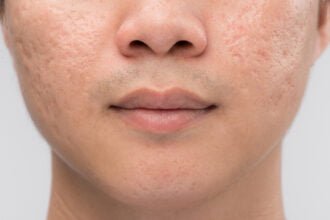 Recently I attended EMUC2012 in Barcelona. The acronym stands for European Multidisciplinary Meeting on Urological Cancer and it draws urologists, medical oncologists, and radiation oncologists from Europe and the U.S.
Recently I attended EMUC2012 in Barcelona. The acronym stands for European Multidisciplinary Meeting on Urological Cancer and it draws urologists, medical oncologists, and radiation oncologists from Europe and the U.S.
 Recently I attended EMUC2012 in Barcelona. The acronym stands for European Multidisciplinary Meeting on Urological Cancer and it draws urologists, medical oncologists, and radiation oncologists from Europe and the U.S. The first day was devoted to prostate cancer and we attended at the urging of Patient Power’s partner, The Prostate Net. It’s led by former corporate executive Virgil Simons, who was treated for prostate cancer 16 years ago. Also attending was Eric Briers, one of the leaders of Europa Uoma, the consortium of prostate cancer patients’ organizations in Europe, and a patient treated 10 years ago. All three of us were looking for clear answers as we heard the latest research and spoke with leading physicians.
Recently I attended EMUC2012 in Barcelona. The acronym stands for European Multidisciplinary Meeting on Urological Cancer and it draws urologists, medical oncologists, and radiation oncologists from Europe and the U.S. The first day was devoted to prostate cancer and we attended at the urging of Patient Power’s partner, The Prostate Net. It’s led by former corporate executive Virgil Simons, who was treated for prostate cancer 16 years ago. Also attending was Eric Briers, one of the leaders of Europa Uoma, the consortium of prostate cancer patients’ organizations in Europe, and a patient treated 10 years ago. All three of us were looking for clear answers as we heard the latest research and spoke with leading physicians.
But there were really no clear answers, only differing opinions from the range of experts.
The problem is doctors still don’t know with certainty which man needs treatment for early prostate cancer, and which man does not because, usually, prostate cancer is slow growing. Which man should have active surveillance? Which man should have surgery or radiation?
Then it’s a question of which man should have hormonal therapy to shut down testosterone, the “fuel” for the cancer. It can have unwanted side effects that are managed with additional teamwork with your doctor. And then, if the cancer spreads, are there some men who could benefit, or even be cured, with radiation? And are all delivery systems of radiation equal? No!
And lastly, when hormonal therapy is not effective can any of the new drugs – with more coming – lengthen life expectancy and preserve quality of life? And which drug should be used alone or in combination and in what order?
Dr. Daniel Petrylak, a renowned prostate cancer expert and medical oncologist from Yale University, recently took us through his thinking on what drugs should be used and when.
So what does that mean for you the patient, or you the person who cares about Dad or Granddad? How can you feel confident about a course of treatment when generally there are many doctors (particularly generalist urologists and medical oncologists) who now have more questions than answers? And they are confounded because the new drugs are not tested head-to-head.
We won’t leave you in the lurch. At the conference we conducted more than 10 video interviews that are now being released and more will come over the coming weeks and months. We consult with some of the most famous experts and leading advocates, including Virgil and Eric, to bring you their latest perspective on how to proceed. The first step is always to GET SMART, to become informed about your specific prostate cancer situation and the broad range of treatment for that situation. The second step is to find true specialists in that condition, more than one. Remember, it does not matter if the doctor is “a nice guy” (or woman), it matters whether they know their stuff. But again, second opinions are a must. And connecting with other men can be very helpful. This applies whether it is for initial treatment or somewhere down the road.
What all the doctors are excited about is that there are now more options than ever. And they are working on new tests to help you and them make informed decisions. But we are in a window of time when the clear answers are not there – yet.
Please look for our new prostate cancer discussions, send us suggestions and be sure to be signed up for alerts so we can let you know as we post something new. And do us a favor and tell others. We are thrilled when people tell us we’ve helped them. As always, you can write to us as comments@patientpower.info.
Fortunately for me, prostate cancer is one cancer I have not yet faced. But my father did. Did he get the best treatment? I will always wonder. That’s why we all have to push for answers on the front end rather than worry when it’s too late that we didn’t get it right.
Wishing you and your family the best of health!
Andrew








